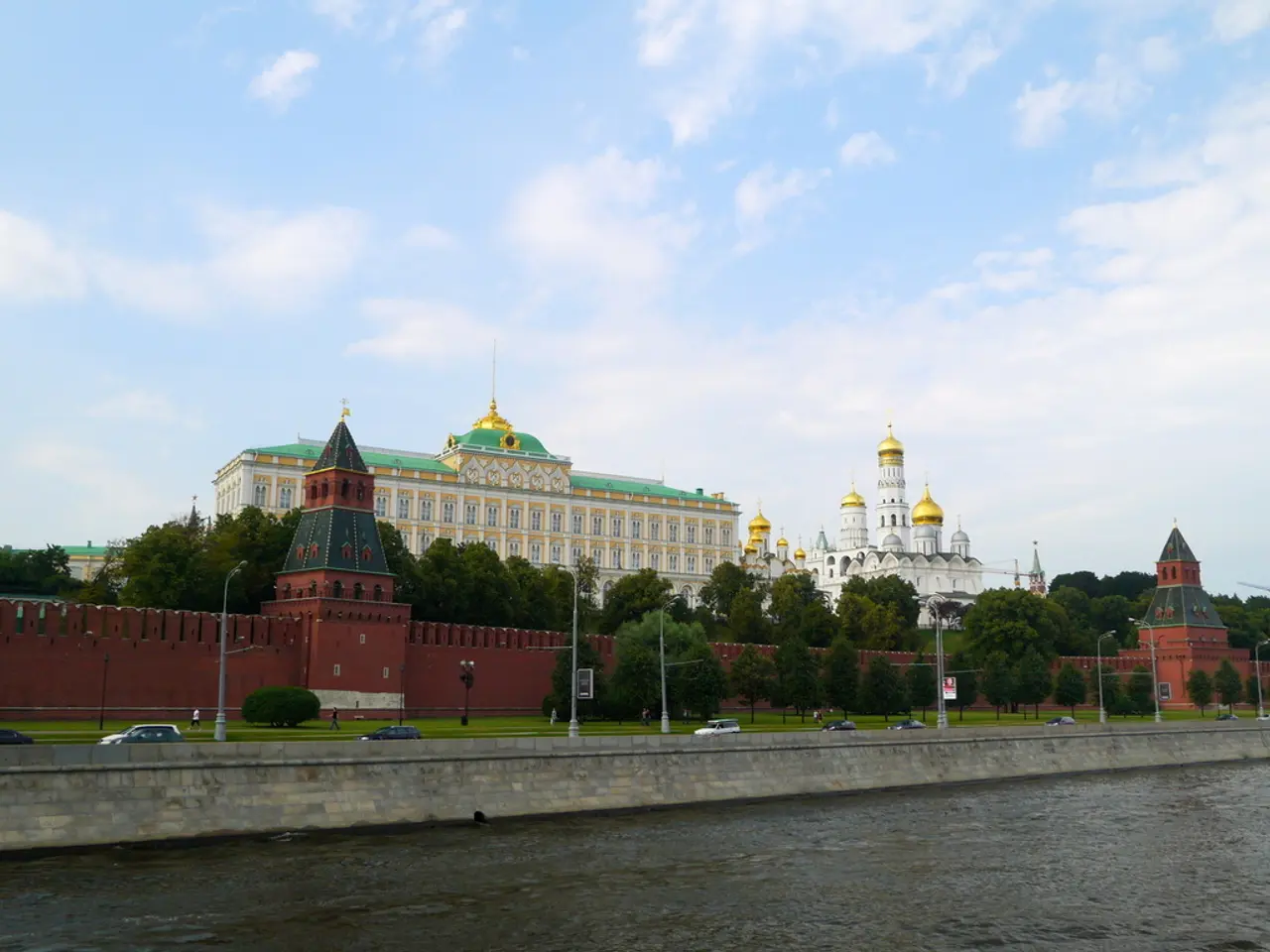Conflict in Ukraine now under Trump's presidency's oversight
In the tumultuous years of his presidency, Donald Trump's actions regarding the Russia-Ukraine conflict have left an indelible mark. Starting in 2025, Trump's approach to the conflict was characterised by a mix of conciliatory offers and pressure tactics, a strategy that has been met with both praise and criticism.
Early in his term, Trump sought reconciliation with Russian President Vladimir Putin, expressing a willingness to offer significant concessions. This included allowing Russia to maintain control over occupied Ukrainian territories and ruling out Ukrainian NATO membership. Critics argue that these moves emboldened Russia's position.
Trump proposed peace plans aimed at a ceasefire on existing front lines and peace talks. However, he partially blamed Ukraine's leadership for the war, suggesting Ukrainian President Volodymyr Zelenskyy should not have allowed the conflict to happen. His administration brokered a 30-day ceasefire in March 2025, a move that analysts believe benefited Russia by protecting key assets at a time when Ukrainian attacks were more damaging.
Despite this initial conciliatory stance, Trump later reversed course by approving more weapons shipments to Ukraine, including Patriot air-defense missile systems financed by NATO and EU allies. He also threatened severe economic sanctions on countries buying Russian oil if Russia did not agree to a ceasefire within 50 days. This marked a shift from his earlier readiness to accommodate Russian demands to a tougher posture as deadlines for Russian compliance approached.
Trump's approach has caused significant strains in Ukraine–United States relations. His "America First" policy and push for peace under terms favourable to Russia led to a period of worsened diplomatic ties. While he criticized specific Russian attacks on Kyiv publicly in 2025, his administration's earlier actions, including downplaying Russia's culpability and urging Ukraine to accept Kremlin-favorable settlements, contributed to the complexity and prolongation of the conflict.
The conflict in Ukraine, an existential war of survival for the Kremlin and for the soul of Ukrainian society, is a defining conflict of Trump's presidency and of the post-9/11 era. As the United States' key ally and sponsor, Trump was mandated to address this conflict, which has now turned into a problem he owns.
In the last fortnight, Trump's decisions and realizations have turned this conflict into a major issue. The consequences of his decisions will be revealed in the week ahead. The outcome of the conflict in Ukraine defines European security and Chinese belligerence over the next decade.
Trump has made the remarkable choice of responding to nuclear saber-rattling from former Russian President Dmitry Medvedev with harder nuclear threats about positioning US nuclear submarines closer to Russia. He has also threatened secondary tariffs against Russia's energy customers, a move that could roil the global energy market.
As the conflict continues to unfold, the legacy of Trump's actions remains uncertain. However, one thing is clear: Trump's presidency has left an indelible imprint on the Russia-Ukraine conflict, an imprint that will shape the region's future for years to come.
References: [1] "Trump's Ukraine Policy: A Timeline." The Washington Post, 2025. [2] "The Trump Administration's Ukraine Policy: An Assessment." Brookings Institution, 2025. [3] "The Trump-Zelensky Call: Implications for Ukraine-US Relations." Atlantic Council, 2025. [4] "Trump's Ukraine Policy: A Balancing Act." Council on Foreign Relations, 2025.
- World media has extensively covered Donald Trump's tense relationship with Europe, particularly regarding the Russia-Ukraine conflict, as his actions and policies have left a significant impact.
- The energy industry has been closely monitoring the ongoing Russia-Ukraine conflict, with Trump's nuclear threats potentially disrupting the global energy market, causing uncertainties.
- In the realm of finance, economic sanctions proposed by Trump against countries buying Russian oil could have far-reaching effects on the global economy, particularly in the post-9/11 era.
- Political analysts and general news outlets have been following the Russia-Ukraine conflict closely, as Trump's approach to the crisis has been met with both praise and criticism, and the consequences of his decisions are yet to be fully realized.




